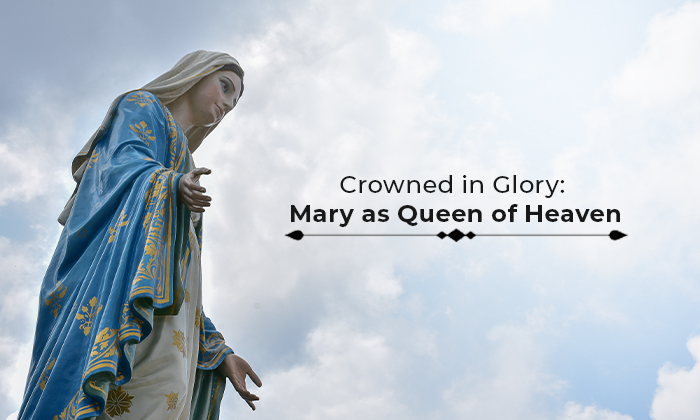The Assumption of the Blessed Virgin Mary: A Journey into Heaven
The Assumption of the Blessed Virgin Mary: A Journey into Heaven

The Assumption of the Blessed Virgin Mary is one of the most profound and cherished dogmas in Christian theology, celebrating the moment when Mary, the mother of Jesus Christ, was taken body and soul into heavenly glory. This event, observed annually on August 15th, is a testament to Mary's unique and exalted role in the story of salvation and the life of the Church.
The Assumption is not only a cornerstone of Marian devotion, but it also provides hope and encouragement to the faithful by representing the ultimate promise of resurrection and eternal life. In exploring the assumption, we embark on a journey into divine mystery and human destiny. We contemplate Mary’s life, her unwavering faith, and her intimate connection with the divine. This invites reflection on our spiritual journeys, aspirations for heaven, and the transformative power of God's grace. Delving into Marian theology reveals the profound significance of the Assumption. It is not just a historical event but a living reality that inspires and guides believers toward sanctity and union with God.
The Significance of the Assumption
At the end of her earthly journey, the Assumption celebrates Mary's glorious entrance into eternal life, body and soul. This event underscores her unique role as the Mother of God, her sinless life, and her unwavering dedication to God's will. For believers, the Assumption is not just a historical event but a living reality. It inspires hope and encourages a deeper faith in God's promises. It also calls us to reflect on our own spiritual journeys and to aspire towards holiness and union with God. Through Mary’s Assumption, we are reminded of the transformative power of God’s grace and the ultimate destiny that awaits those who follow Him.
Historical and Theological Background
The belief in the Assumption of Mary has its roots in early Christian tradition, although it was formally defined much later. The doctrine teaches that Mary, having completed her earthly life, was assumed into heaven. Theological support for the Assumption is linked to Mary's role as the Mother of God, deemed fitting by Church Fathers like Saint John Damascene, who argued that the body that bore Christ should not see corruption. This belief was formally defined as a dogma by Pope Pius XII in 1950, affirming the Assumption as a central truth of the Catholic faith and symbolizing the hope of resurrection and eternal life for all believers.
Spiritual Significance Mary’s Unique Role in Salvation History:
As the mother of Jesus, Mary holds a special place in Christian theology. Her Assumption highlights her unique role and honors her as the first to fully share in the resurrection of her Son.
The Assumption is not just about Mary's physical journey into Heaven but also symbolizes the hope of eternal life for all faithful Christians. It serves as a reminder of the dignity of the human body and the ultimate fulfillment of God's promise of resurrection. For many believers, Mary's Assumption is a source of comfort, reflecting the idea that those who remain faithful to God will one day share in His glory.
On August 15th, as we celebrate the Assumption of Mary, let us be inspired to live as she did on this earth with deep faith, humility, and unwavering devotion to God. Mary’s life was marked by her complete trust in God’s will, her gentle strength, and her compassionate heart. By embracing her example, we can strive to lead lives of kindness, humility, and faithfulness, seeking to follow God’s plan with the same grace and courage that Mary demonstrated throughout her earthly journey. Our Lady's feast days, shows her various roles in our religious life, from our Redemption to our own personal salvation. Shows why Our Lord let Mary suffer and not know everything about His plans, and why Our Lady achieved such pre-eminence among all Angels and Saints. To know more about Blessed Virgin Mother Mary, visit our St Pauls UK online store.

